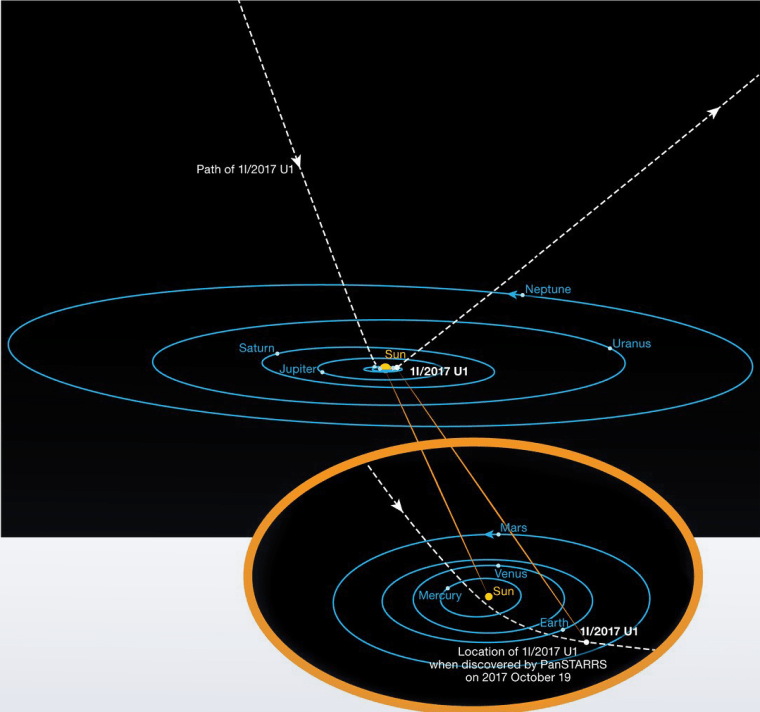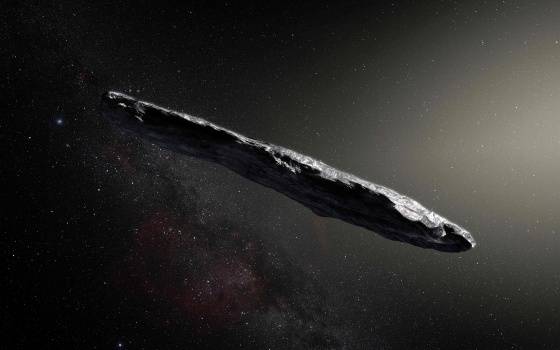Astronomers got a jolt last fall when a telescope in Hawaii glimpsed a large, cigar-shaped object tumbling past the sun at an astonishing clip of 196,000 miles an hour.
Some guessed the 400-meter-long “Oumuamua” object was an alien spacecraft, others that it was a comet. Now it seems increasingly likely that the reddish-tinged thing was an interstellar asteroid — the first known visitor to our solar system from another — and a new study suggests it shot our way after being ejected from a star system with two suns.
“For me as an astronomer, the idea that we have now seen an object up close that not only came from another star system, but one that is very different from our own, was awe inspiring,” Dr. Alan Jackson, an astronomer at the University of Toronto Scarborough and leader of scientists who conducted the research, told NBC News MACH in an email.

For the study, published March 19 in Monthly Notices of the Royal Astronomical Society, Jackson and his collaborators performed 2,000 computer simulations of binary star systems with a small third body representing an object like Oumuamua.
Previous research had shown that when small bodies get close to the center of the system their orbits become unstable, Jackson said. But it was unclear whether small bodies in binary systems wind up hitting one of the stars or being ejected from the system.
“We found that the overwhelming result is ejection with almost none of the small bodies hitting one of the stars,” Jackson told MACH. Based in part on that finding, the scientists concluded that more than 95 percent of objects like Oumuamua originate in binary star systems — and that Oumuamua was one such object.
"Dr. Jackson's statistical finding that such objects would most likely come from binary star systems, ejected through their gravitational interactions, makes sense," Dr. Jay Pasachoff, an astronomer at Williams College in Williamstown, Massachusetts, told MACH in an email. "Of course, we already get particles known as cosmic rays and neutrinos from afar, along with light and its sister radiations plus gravitational waves, but it is exciting to have a macroscopic object."
Jackson said astronomers were fairly confident that Oumuamua didn’t come from a nearby system but that it was hard to know its exact origins. As for its age, he said, “Oumuamua could well have been out there for hundreds of millions of years. Unfortunately, because it came through our solar system very fast and was only discovered when it was already on its way out, our observations of Oumuamua are quite limited.”
FOLLOW NBC NEWS MACH ON TWITTER, FACEBOOK, AND INSTAGRAM.


